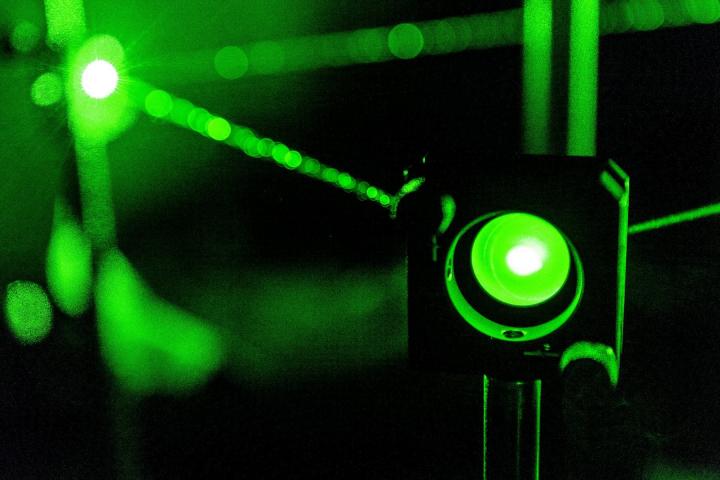
"The use of quantum phenomena in computer science, data processing, communications and electronics promises a similar breakthrough as the advent of integrated circuits in the 1960s. Mastering quantum technologies will allow us not only to increase the computing power of computers - not only quantum ones - but they will probably also bring completely new discoveries, about which we have no idea yet, "says prof. Igor Jex, Dean of the FNSPE and, among other things, a member of the Strategic Advisory Board of the European research project QuantERA focusing on cooperation and support for quantum technology research.
"For doctoral students, we already have more than two dozen dissertation topics prepared across our departments in the Quantum Technology study program. Their leaders belong to the top not only in the Czech Republic, but also at the international level, "explains doc. Ivan Richter from the Department of Physical Electronics, who is the guarantor of the study program. It is jointly provided by the Department of Physics (KF), the Department of Physical Electronics (KFE), the Department of Mathematics (KM), the Department of Solid State Engineering (KIPL) and the Department of Materials (KMAT). The faculty also expands the technical background for the new program, supported by OPVVV projects: it acquired powerful computing servers and created the Quantum Hyperion cluster, built a special laboratory for the realization and characterization of quantum nanostructures and a unique quantum photonics laboratory for studying quantum effects.
„Přestože už se objevily první kvantové počítače a některé poznatky kvantové fyziky – jako jsou polovodičové součástky, jaderná energetika, lasery, magnetická rezonance, uhlíková vlákna, mikroskopie a některé další technologie – už v běžném životě využíváme, celá oblast kvantových technologií je stále na začátku svého vývoje. V mnoha oblastech jde de facto o základní výzkum a všem, kdo jsou u toho, se nabízí příležitost být u zrodu něčeho převratného a spolupracovat s těmi nejlepšími vědci u nás i ve světě,“ doplňuje doc. Ivan Richter.
"Although the first quantum computers already appeared and some knowledge of quantum physics - such as semiconductor components, nuclear power, lasers, magnetic resonance, carbon fibers, microscopy and some other technologies - are already used in everyday life, the whole development of the quantum technology field is still in its infancy. In many areas, it is de facto basic research and everyone who is involved is offered the opportunity to be at the birth of something revolutionary and to cooperate with the best scientists in our country and in the world, "adds doc. Ivan Richter.
The importance of quantum technologies is also recognized by the European Union, which supported their development in October 2018 by creating the Quantum Flagship initiative, supported by EUR 1 billion over ten years. The main goal is to support research into quantum technologies in Europe.
The application for the study can be submitted until 4 August 2020. Further information on the Quantum Technology study program can be found on the website, including offered dissertation topics.